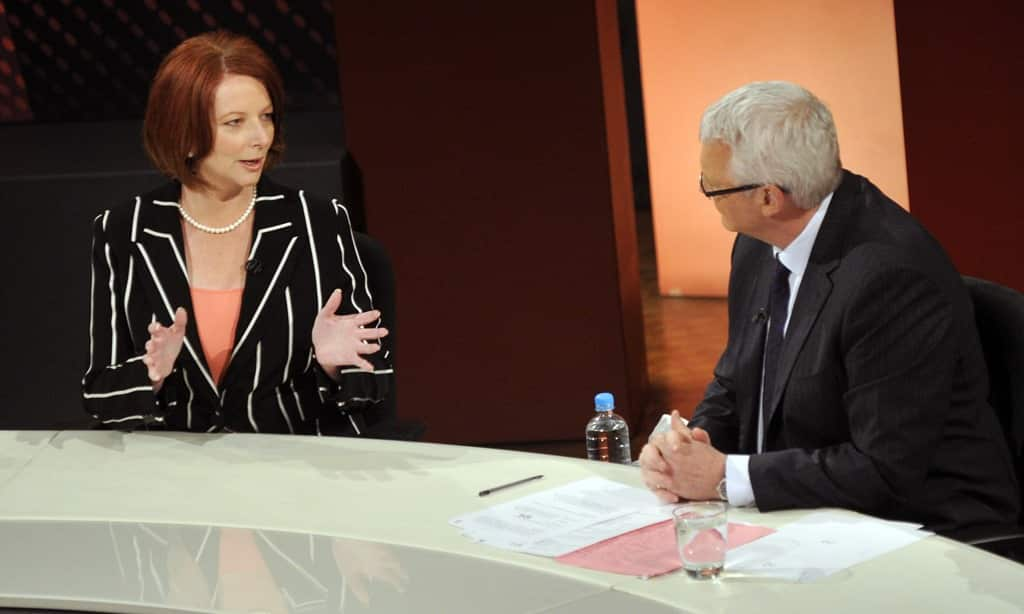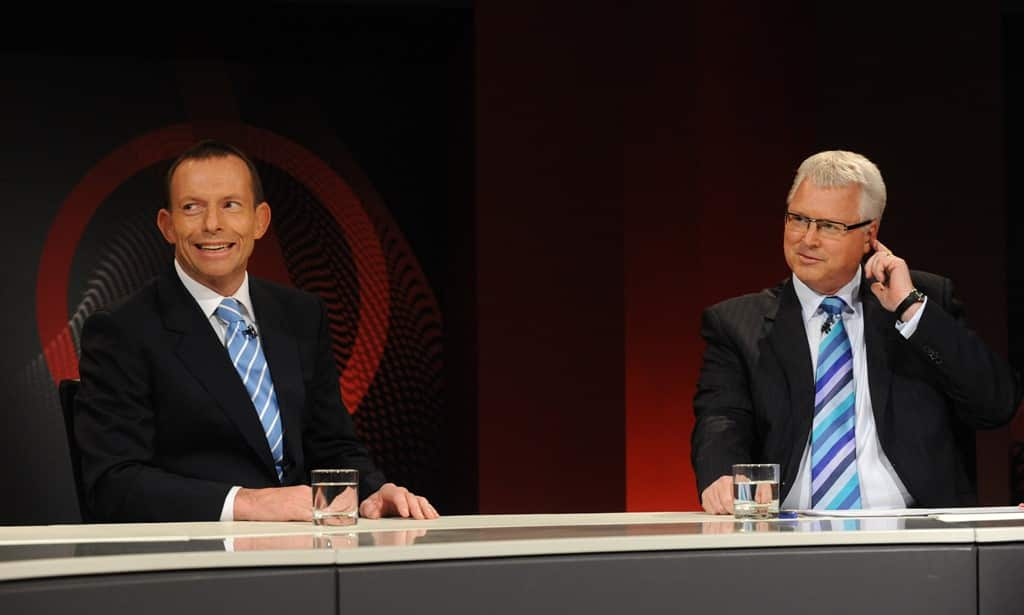It’s hard to know whether Tony Jones could have expected the chorus of criticism after Q&A decided to not broadcast the protest that disrupted the broadcast on Monday night. Certainly at the time, the protest - against proposed cuts to higher education funding - was dismissed immediately by the show, with Mr Jones decrying that ‘this is not what democracy is about.’
It is fascinating that Q&A, with Mr Jones at the helm, has long championed itself as live democracy, the great leveller that seeks to engage everyone in a debate. According to Mr Jones, ‘we’re all citizens here, we all have a role in this, so it’s important the panel is representative.’
Q&A has unfortunately established itself as an imperfect forum for democratic debate, and taking the supposed highroad on Monday night appears disingenuous at best. At worst, the show now runs the risk of claiming democratic debate in name only, preferring to see the concept of democracy as a filtered, managed, unrepresentative platform for one-way discourse.
But it becomes hard to reconcile these comments with Monday night’s actions, and the subsequent review of security and formal apology to Christopher Pyne that the ABC felt compelled to issue. Granted, as Education Minister and guest on the show, Mr Pyne’s comments on the proposed education reform deserved to be heard - but at the risk of censoring disagreement?
Is Q&A’s democracy only valid so long as it is conducted according to the modicum of respectability that Mr Jones expected on Monday night?
Harder still is it to accept the show as a bastion of free and open debate when the previous week’s episode appeared to shut down any possible discussion of the National Broadband Network.
So noticeable was the filtering of debate between Van Badham and Communications Minister Malcolm Turnbull and their inability to discuss the NBN, that some accused the ABC of actively censoring an issue for fear of criticising the government.
Q&A carries a reputation of preferring certain speakers and certain lines of debate, with the show generally preferring a male majority panel to its detriment. In the past, guests such as Catherine Deveny and former Employment Minister Kate Ellis have been on the receiving end of verbal abuse, condescension, and derailing lines of attack from other panelists.

Q&A has unfortunately established itself as an imperfect forum for democratic debate, and taking the supposed highroad on Monday night appears disingenuous at best. At worst, the show now runs the risk of claiming democratic debate in name only, preferring to see the concept of democracy as a filtered, managed, unrepresentative platform for one-way discourse. The very nature of the show is in doubt when questions are ignored and answers refused.
As the March in March protests this year established, the country is craving honest democracy, and democratic discourse that is wholly different to the status quo. That those protests around the country were largely ignored by mainstream media, disregarded by the government, and written off as a ‘mixed bag of issues…united [in] anger and frustration at everything that’s happened since the federal election’ illustrates the futile nature of effective protest available currently in Australia.
Democracy in this country is operating as a one-way soapbox, as evidenced by Q&A on Monday night. The country is being lectured to and instructed on how things will be, after the fact. From the silence on Operation Sovereign Borders, to the obfuscation and criticism-control of Manus Island, to the lack of dialogue about the state of the NBN - the last few months in this country have been tantamount to bloody-minded propaganda.

The irony in the latest incident on Q&A is palpable. That the protest was in response to Mr Pyne’s comments about higher education reform should come as no surprise. Minor though it was, the protest clearly displayed the frustration and anger at yet more destabilising changes to the education system since Mr Pyne assumed responsibility for the portfolio.
Mr Pyne has reneged on pre-election promises, destroyed the Gonski reform , threatened more performance-based pay, put the Australian Curriculum on notice, reignited the history wars, and now sees fit to further hinder the accessibility of higher education.
At every turn, Mr Pyne has driven a wedge between the Australian people and meaningful education, and his latest stunt is inexcusable. An entire future generation of the country is in danger of further disenfranchisement, based on the whims of a government that seeks to politicise education while washing its hands of the responsibility.
Expecting decency in debate is laughable when we are afforded none. What Tony Jones, Christopher Pyne and the Government fail to recognise is that we want a democracy that represents us, rather than bludgeoning us with repetitive talking points and condescension. The peasants are revolting, and rightly so.
Craig Hildebrand-Burke is a writer and teacher from Melbourne.

